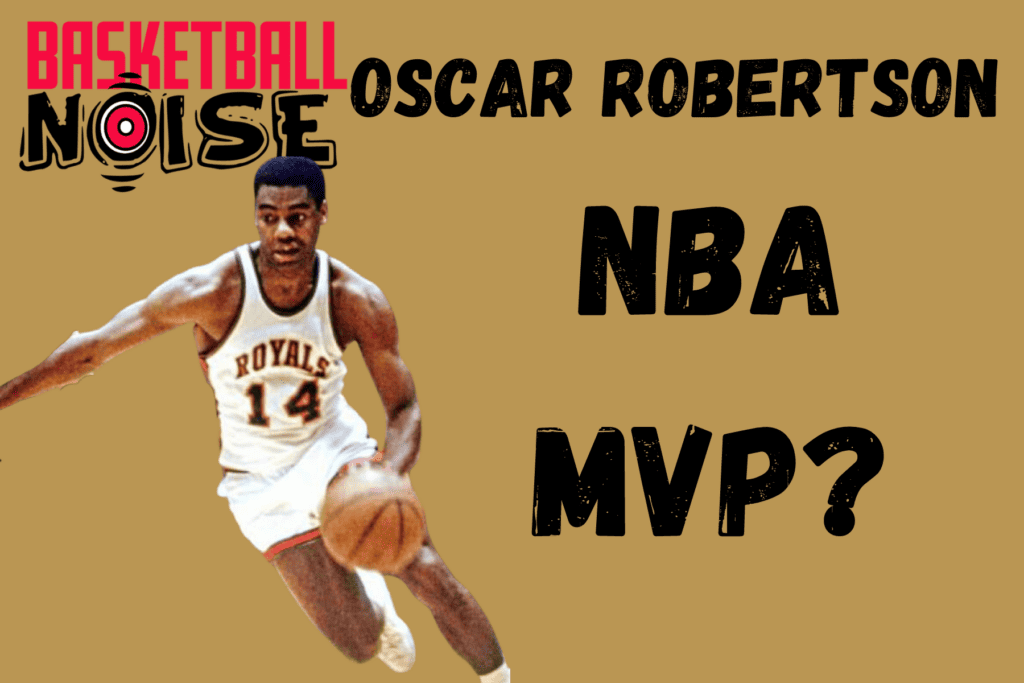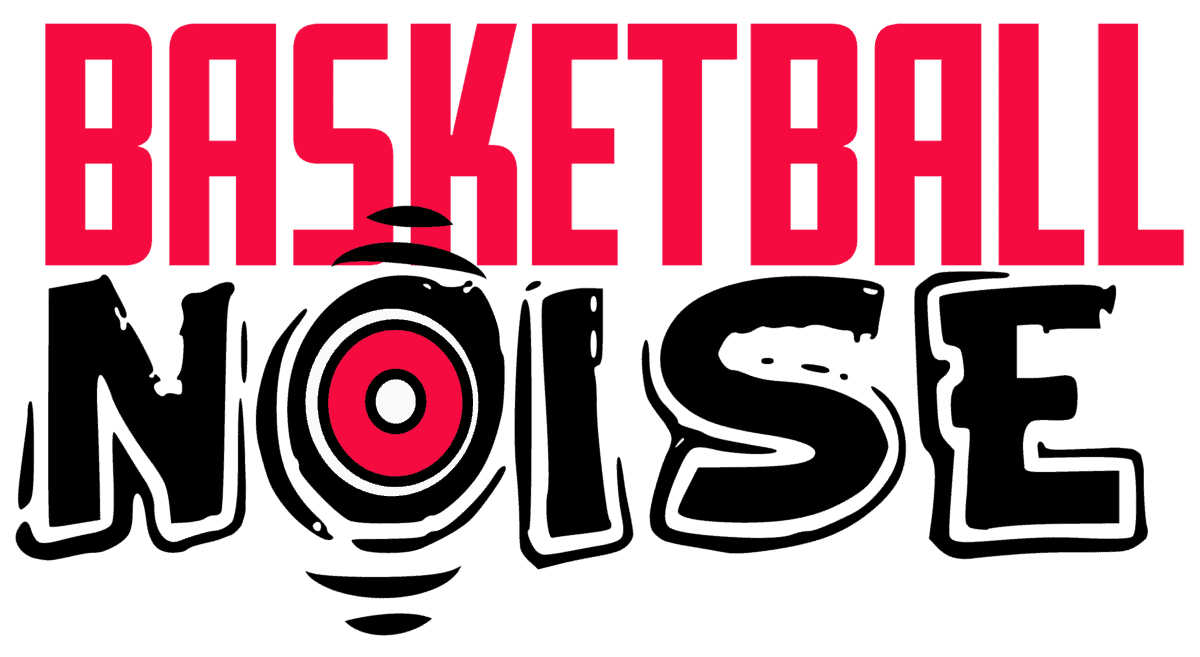Oscar Robertson, drafted in 1960, won just one NBA MVP over his illustrious 14-year career with the now-defunct Cincinnati Royals and later the Milwaukee Bucks. The former first overall pick won the prestigious award in his 1963-64 season with the Royals while averaging 31.4 points, 9.9 rebounds, and 11.0 assists per game to beat both Bill Russell and Wilt Chamberlain, who had dominated the era and jointly won all other MVP trophies, to the honor.
| Season | NBA MVP | Position | Team |
| 1960–61 | Bill Russell | Center | Boston Celtics |
| 1961–62 | Bill Russell | Center | Boston Celtics |
| 1962–63 | Bill Russell | Center | Boston Celtics |
| 1963–64 | Oscar Robertson | Point guard | Cincinnati Royals |
| 1964–65 | Bill Russell | Center | Boston Celtics |
| 1965–66 | Wilt Chamberlain | Center | Philadelphia 76ers |
| 1966–67 | Wilt Chamberlain | Center | Philadelphia 76ers |
| 1967–68 | Wilt Chamberlain | Center | Philadelphia 76ers |
Robertson was the only Non-Centre to win the NBA MVP Award during his career. In addition he averaged a triple double in just his second season in the League. Almost repeating the feat in the other 4 of his first 5 seasons. A record that stood until Russell Westbrook clinched his only MVP trophy on the back of a triple double average in 2016-17. In short, Robertson was like nothing Basketball had ever seen before.

Journey to the NBA
You could say that Robertson was destined for the NBA because the series of events that led up to him being selected by the Cincinnati Royals as the first overall pick of the 1960 NBA draft seems to have prepared him for basketball’s biggest stage.
The 12-time NBA All-Star was initially born in the impoverished projects in Charlotte, Tennessee in late November 1938. Seeking to improve their quality of life, his family thereafter moved to Indianapolis, Indiana where Robertson was exposed to the harsh realities of segregation.
Despite the obvious challenges, the six-time NBA assists leader still managed to cultivate his love for basketball and developed his shooting skills by shooting baseballs or makeshift rubber band balls into a peach basket in their backyard. His star began to shine after he joined Crispus Attucks High School where he learned the fundamentals of the game and won two straight state champions, going 62-1 over that duration.
Robertson was then accepted to the University of Cincinnati where he got a chance to prove his scoring prowess by winning three consecutive national scoring titles in his three years at the institution. with the Cincinnati Bearcats. The two-time Helms College Player of the Year still holds the team’s records for most points scored in a game, career points, career rebounds per game, and career triple-doubles, which are testaments to his undeniable greatness.
The three-time Consensus first-team All-American also led the team to two Final Four appearances and bagged multiple notable honors including three Sporting News College Player of the Year awards, two USBWA College Player of the Year nods, and three UPI College Player of the Year trophies.
Making NBA History
After joining the Cincinnati Royals ahead of their 1960-61 campaign, Robertson quickly established himself as an all-round threat averaging 30.5 points, 10.1 rebounds and 9.7 assists in his rookie year, which rightfully made him the runaway winner of that season’s NBA Rookie of the Year award and earned him his first of nine All-NBA First Team selections.
In just his second season in the league, Robertson became the first player in NBA history to average a triple-double with 30.8 points, 12.5 rebounds and 11.4 assists on 47.8% shooting from the field (fourth in the league). The three-time NBA All-Star also set the record for most regular season triple-doubles with 41 – a record that lasted 55 years.
Robertson also became one of only three players with a height of not more than 6’5 to register over 900 rebounds in a single season and shattered Bob Cousy’s 1959-60 single-season assist record of 715 by dishing out 899 dimes in the same campaign.
Aside from breaking Bill Russell’s and Wilt Chamberlain’s vice-like grip on the MVP award, the 2018 NBA Lifetime Achievement Award recipient became the only non-center after Bob Cousy to win the NBA MVP award over a 20-year period.
Highlights of Oscar Robertson’s MVP Season
In his MVP season, Robertson only scored less than 20 points in one game including the playoffs in a victory over the New York Knicks in mid-October 1963 in which he also registered 8 rebounds and 10 assists.
Robertson registered an awe-inspiring 33 20-point and 30-point games during the impressive run along with 11 40-point games. In 10 playoff games in the first and second rounds of the 1964 playoffs against the Philadelphia 76ers and Boston Celtics respectively, Robertson had seven 30-point games and three 20-point games.
The rebounding machine also grabbed more than 10 boards on 39 separate occasions including a season-high 22 rebounds in a clash against the Celtics in late December 1963. Robertson equally logged double-digit assists 33 times including a season-high 21 dimes against the Knicks in mid-February 1964.
Why Oscar Robertson Belongs to an Elite Class
Unlike most point guards in the era who relied on their speed and smaller size to beat bigger wing and frontcourt players, Robertson utilized his sound fundamentals, length, and solid 210-pound frame to position himself wherever he pleased on the court and made layups and jump shots over much bigger defenders almost at will.
To put Robertson’s unconventional approach to the game in perspective, legendary Celtics head coach Red Auerbach often lamented that the 1960 Olympic gold medalist often shot the ball “through” the fingers of his players.
Former Knicks guard Dick Barnett further attested to Robertson’s work ethic by joking that the ex-Milwaukee Bucks guard would work on him to get a 10-foot shot whenever he was given a 12-foot shot, craftily reduce a 6-foot shot to a 4-foot shot and convert a 2-foot shot into a layup.
Robertson’s heroics in his MVP season led the Royals to an unprecedented 55-25 record and to a second-place finish in the Eastern Division. The 1971 NBA champion also shot a little over 85% from the free throw line (made 800 of his 938 attempts). The 1980 Naismith Memorial Basketball Hall of Fame inductee would have won the scoring title (he scored 2480 points) were it not for Chamberlain’s absurd point totals that season.
